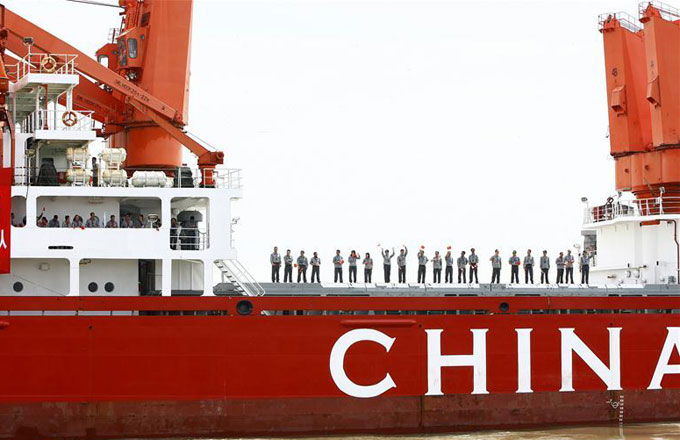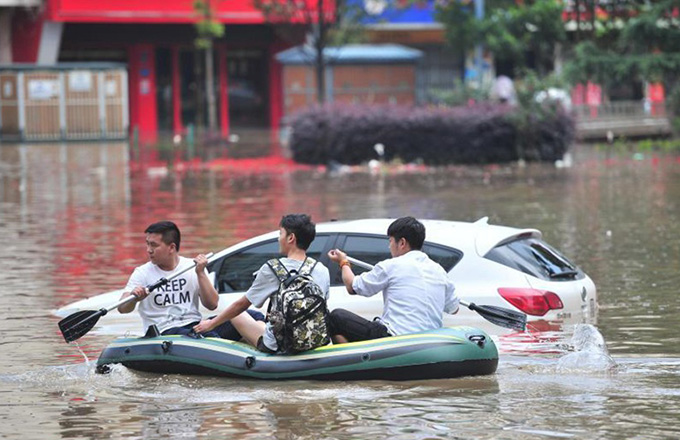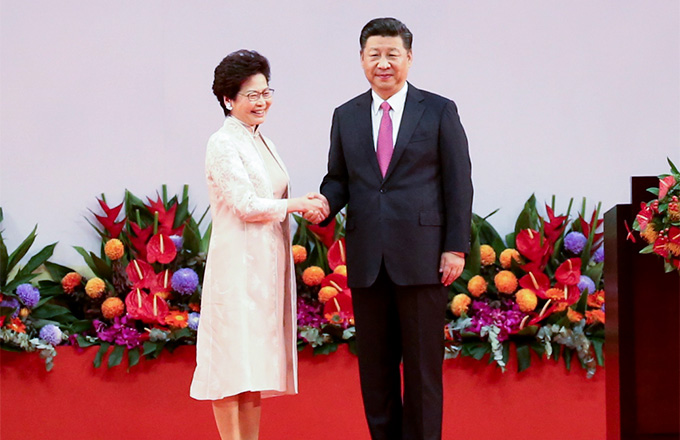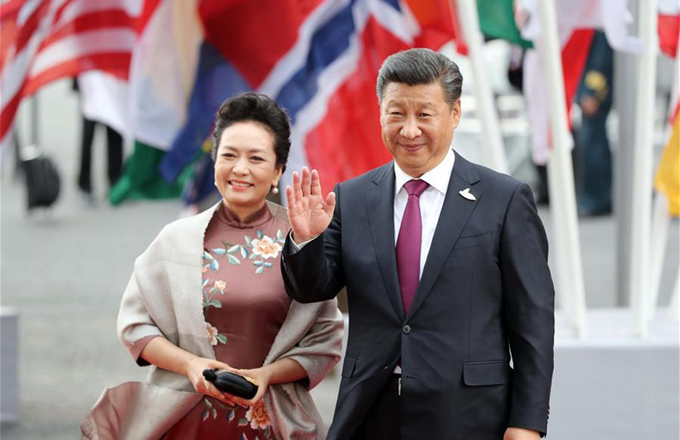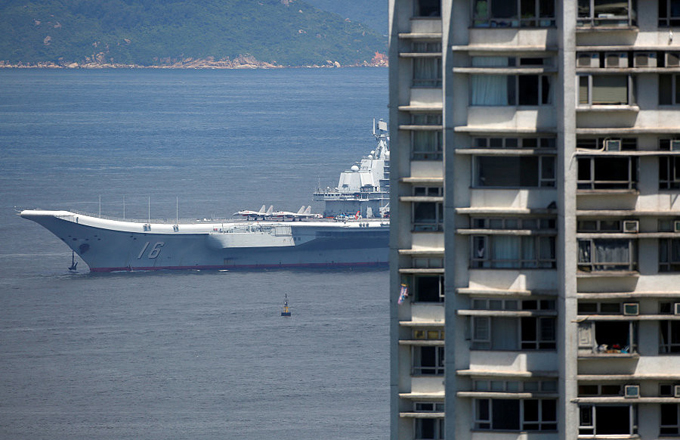Major source for Beijing water plan 'polluted'
Lax law enforcement and shortage of funds are making situation worse
Part of the Danjiangkou Reservoir, a major water source of the South-to-North Water Diversion Project, is heavily polluted and needs urgent treatment, according to a report by the country's top advisory body.
Lax enforcement of environmental laws and a shortage of funds are making the situation worse, said an investigation report by the National Committee of the Chinese People's Political Consultative Conference released on Wednesday.
Water from the reservoir, located in central China, is expected to be sent directly to Beijing for drinking and other everyday uses in 2014.
Though the local government pledged to guarantee water quality, serious pollution persists — untreated urban sewage and waste directly flow into the water, the report said.
Seven rivers — two in Henan province and five in Hubei — that flow into the reservoir are still on the heavy pollution list.
Local environmental regulators in both provinces said they would carry out stricter law enforcement.
Wang Rumin, an official in Henan who is in charge of environmental issues involving the project, said that they have closed all factories near the reservoir that were violating environmental rules.
Wang Xuefeng, spokesman of Shiyan city in Hubei, said the city government has inspected water treatment plants to make sure no urban sewage flows directly into rivers.
A deeper problem is the absence of legislation governing water sources, the report added.
"A standard legal guidance is needed to establish a clear division of power and responsibility for central and local governments," it said.
The report, based on investigations undertaken in Hubei and Henan in May, also pointed out that local governments have huge funding shortages for environmental protection.
More than 80 percent of the 45 counties in the area in question are poverty-stricken, and their budgets cannot cover all environmental projects, according to the report.
Shiyan, for example, plans to build 73 water treatment plants with 100 km of underground sewage pipes.
The central government subsidized a pipe network of only 60 km, leaving a 60 million yuan ($9.78 million) financing gap for the local government to fill.
Wang, the city's spokesman, said that operating water treatment plants is very costly.
He said operating the plants costs 85.7 million yuan per year, while only 46.1 million yuan in sewage treatment fees was collected last year. Due to financial constraints, some plants do not fully operate.
Fairer and more reasonable ecological compensation is required, the CPPCC report said.
"Cities like Beijing and Tianjin that would benefit from the project should allocate funding from their revenues to support water protection, so as to fill the financial gap and ensure better water quality."
An Baijie contributed to this story.






